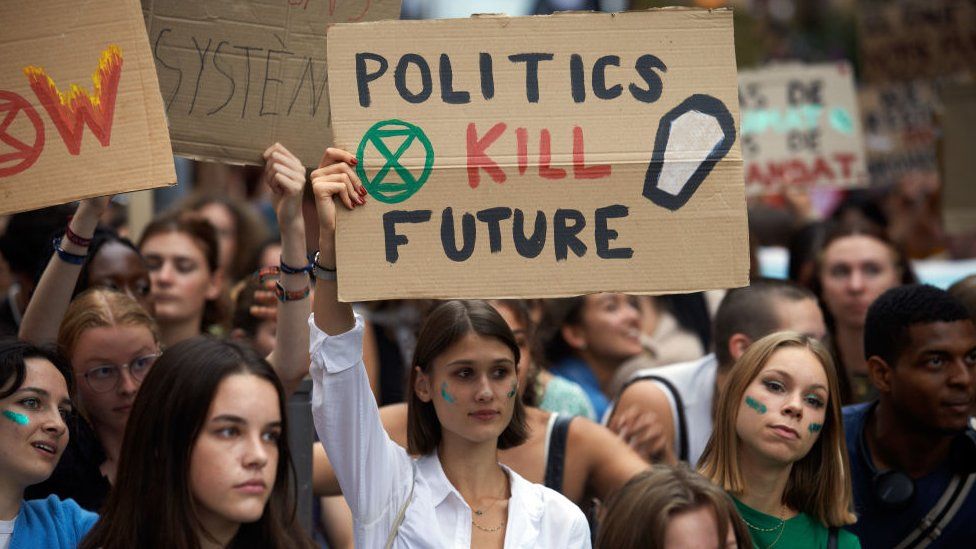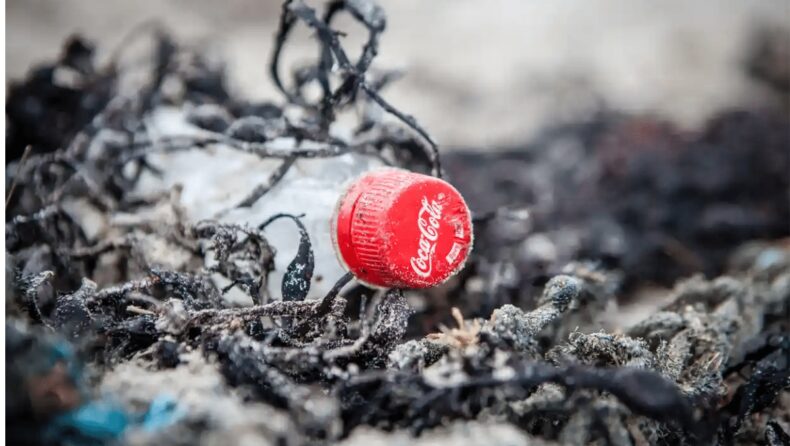A sponsorship agreement between this year’s UN climate conference and Coca-Cola, which has been called by an environmental organisation as the “world’s biggest polluter,” has been dubbed “greenwash” by protesters.
Cop27, which will be held from November 6 to 18 in the Egyptian beach resort of Sharm el-Sheikh, is the world’s major platform for governments, corporations, and environmental organisations to address the climate emergency.
“Coca-Cola supporting the Cop27 is classic ‘greenwash,'” said Emma Priestland, a coordinator for Break Free From Plastic, a global collaboration of organisations and individuals. Coca-Cola is one of the world’s largest plastic consumers.
“In our yearly brand audits over the last four years, we’ve discovered Coca-Cola to be the world’s top plastic polluter,” she stated. “It’s incredible that a firm so closely linked to the fossil fuel sector is permitted to sponsor such an important climate gathering.”
Environmental activists called the collaboration perplexing. A delegate at Cop26 in Glasgow created a petition calling for an end to corporate sponsorship of the Cop discussions, beginning with the elimination of Coca-Cola.
“It is perplexing that Coca-Cola – the world’s largest plastic polluter in all global Break Free From Plastic brand audits – would sponsor this year’s UNFCCC Conference of Parties in Egypt,” said John Hocevar, oceans campaign director at Greenpeace USA.
“Coca-Cola generates 120 billion disposable plastic bottles every year – and 99% of plastics are derived from fossil fuels, exacerbating both the plastic and climate crises,” he stated.
“They have yet to even accept that this is an issue, let alone explain how they can accomplish their climate targets while continuing to use plastic.” This collaboration contradicts the exact goal of the event it intends to fund.”
The Egyptian government struck a collaboration arrangement with Coca-Cola. During the signing ceremony at the Egyptian Foreign Ministry, Ahmed Rady, Coca-vice-president Cola’s of operations for North Africa, stated, “Coca-firm Cola’s belief that working together through meaningful partnerships will create shared opportunities for communities and people all over the world and in Egypt.”
In 2019, the corporation acknowledged the use of three million tonnes of plastic packaging per year.
In 2021, a Break Free From Plastic audit designated Coca-Cola the world’s leading plastic polluter.
“This decision by the COP27 chair goes against the goal of the meeting,” Earth Uprising International’s Mohammad Ahmadi stated.
When the UK government hosted the climate talks last year, it prohibited fossil fuel firms from sponsoring the event.
Last year, Unilever was the primary partner at Cop26 in Glasgow, while AG Barr, the creator of Irn-Bru, was the exclusive soft drink and water supplier at two convention centres in Glasgow throughout the conference. The Irn-Bru contract was viewed as a marketing coup for the brand, with a surprising endorsement from US congressman Alexandria Ocasio-Cortez when she was given a can by Scotland’s first minister, Nicola Sturgeon.
Sky, Hitachi, National Grid, ScottishPower, Microsoft, NatWest, Sainsbury’s, and Unilever were among the corporations interested with Cop26 sponsorship, which was estimated to be worth over £250 million.
Climate activists interviewed by the BBC were concerned not just about the signal the sponsorship delivered, but also about how it would impact the discussions.
Nyombi Morris, a Ugandan climate campaigner and UNOCHA Ambassador, told the BBC: “We don’t achieve good outcomes when polluters dominate climate discussions. As an African campaigner, I am afraid that more of our lakes may become polluted with plastics.”
Last year, the BBC discovered the impact of Coca-plastic Cola’s pollution on rural villages throughout the world.

Coca-Cola Speaks
“We share the objective of eradicating garbage from the ocean and applaud efforts to raise awareness about this concern,” Coca-Cola stated. We are ready to contribute and have set ambitious targets for our company, beginning with collecting and recycling a bottle or can for every one we sell – regardless of origin – by 2030. We signed a joint declaration in 2020 calling for United Nations member states to propose a worldwide convention to address the issue of plastic waste through a holistic, circular economy strategy… Our support for Cop27 is consistent with our science-based goal of reducing absolute carbon emissions by 25% by 2030 and achieving net zero carbon emissions by 2050.”
Hocevar, on the other hand, stated that “reducing plastic output and eliminating single-use plastic is consistent with the objective of keeping global warming below 1.5 degrees.”
Furthermore, Hocevar stated, “If Coca-Cola truly wants to tackle the plastic and climate issue, it must turn off the plastics tap.”













